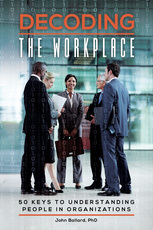
Some perceptions seem to be innate. We tend to perceive taller people and more attractive people as more competent, and thus they tend to be more successful in obtaining promotions and opportunities. Some of these perceptions are based on sex-related real differences. One sex-related difference we usually do not consider is the pitch of our voice. Pitch is the rate at which our vocal cords vibrant. Men have thicker, longer vocal cords and lower pitch. On average women’s vocal cords vibrant twice as fast as men and hence the higher pitch. Pitch is one of the largest sex-related differences between men and women.
David Puts (Penn State) talked about pitch and sex differences at a symposium in 2015 at the International Convention of Psychological Science meeting in Amsterdam. Puts described the physiology of pitch, its probable evolutionary role in human mate selection, and implications for the workplace.
- We tend to lower the pitch of our voice when we command others to do something; we raise the pitch when asking questions.
- We tend to perceive people with lower pitch as leaders; we treat with more respect.
- A 1 Hertz decrease in pitch may increase annual salary by $8500.
- Pitch may play a role in the socio-economic prospects for women since most have higher pitch.
My take-aways:
1. There is a growing body of research that supports the role of voice pitch in workplace success. Duke University business professors found CEOs with deeper voices ran larger companies and earned larger salaries.
2. My own experience has been that people with voices with lower pitch tend to be perceived as more confident, both men and women. Research has shown confidence consistently as a leadership trait.
3. If you have a voice with a higher pitch, you may be able to lower the pitch with practice. When you talk, notice where the air vibrates in your mouth. The farther back in your mouth and throat the vibration, the deeper the voice sounds.
4. I think the larger issue here is the unintentional bias that may exist in the workplace that limits opportunities for women and some men, not based on ability but the sound of their voices. As leaders this should enter into our judgments and decisions. We should not unintentionally deny opportunities to those who might be very successful given the opportunity.
Puts, D. (March, 2015). Human sexual selection: What our voices tell us. Paper presented at the International Convention of Psychological Science, Amsterdam, The Netherlands.
© John Ballard, PhD, 2016. All rights reserved.
__________________________
Author of Decoding the Workplace, BEST CAREER BOOK Next Generation Indie Book Awards.
"Decoding the Workplace: 50 Keys to Understanding People in Organizations is as informed and informative a read as it is thoughtful and thought-provoking. . . Decoding the Workplace should be considered critically important reading for anyone working in a corporate environment." —Midwest Book Review
Available at leading online bookstores such as Amazon.com
________________________
Follow me on Facebook at https://www.facebook.com/johnballardphd
On Twitter: @johnballardphd
 RSS Feed
RSS Feed